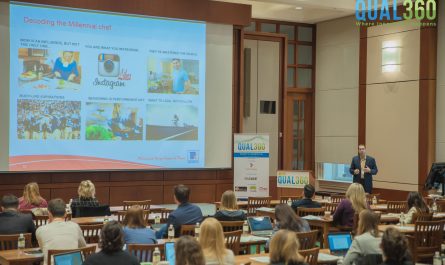Learnings from the Insights Extravaganza Europe 2021
2 days, 42 sessions, 59 speakers/panelists (32 from the brand side and 27 from the supplier side), and a cocktail hour generate a lot of notes and insights on what is currently on market researchers’ agenda. Four topics kept popping up: customer-centricity, staying “eyes on the ball” in a busy reality, ensuring data is used, and breaking down silos internally to improve collaboration.
All four topics were mentioned by market researchers on the brand side in several sessions. They mark the common denominator that while the amount of data and technology is on an ever high and increasing at the speed of light, the complexity of navigating and utilizing the data and insights generated are increasing proportionately.
This fosters new skill demands for the market researcher. Not only do they need to understand data and market research methodologies; diplomacy and stakeholder relationship-building competencies are equally important to drive the results market researchers are expected to deliver. Luckily, discussions were open and honest in what seemed to be a genuine desire to facilitate peer-to-peer teaching and learning.
1. Customer-centricity takes constant reminding in a real-world paradox where stakeholders sometimes see consumer insights as nice-to-have
In her opening keynote, Philips’ Global Business Partner for Insights & Analytics, Anna-Sterre Mees, compared the internal stakeholders to the geographers in The Little Prince: so busy mapping the landscape that they never get out of their offices to see it.
A challenge Head of I&A, Kerryn Grunwald, said Reckitt is tackling with their consumer closeness program where consumer insights are brought closer to stakeholders through a company panel, planned consumer sessions and intense internal campaigning.
2. In an overworked reality it can be difficult to stay focused on what is important rather than what is urgent
87% of market researchers have experienced mental health issues in the past year, the Market Research Society reported recently. Many of their respondents indicated that it was work-related. In other words, it is well-established that market researchers are overworked.
Global Strategy & Insights Director, Agathe Danjou, reported how Danone has addressed this with their 10-week innovation program to allow focus, and Kerryn Grunwald calls for suppliers to educate and enlighten CMIs on how to innovate their approaches to work smarter
On that note, Consumer & Marketplace Insights Manager in Nestlé, Florian Heyden, encourages suppliers to stop calling an approach “innovative” if it’s the same pig, but with a new lipstick; market researchers DO want to find smarter ways to work, but they’re so swamped in unsolicited “this is new!” sales emails/calls that they lose sight of what might be a relevant new technique or approach to try.
3. Ensuring that data is actually used is a real task!
This one is huge. And ironic; while ESOMAR estimates that market research is a §76bn industry, companies still struggle to implement what they learn into their business strategy, product development, marketing, etc. Being data-driven might seem logical. In this day and age, data is everywhere and accessible but turning data into (the right) actionable insights is not as straight-forward!
This was indicated by Reckitt’s consumer closeness program, Anna-Sterre Mees’ comment about the stakeholders (see above). Including Florian Heyden’s discussion of how market researchers should be positioned at the heart of their organizations to work towards the right objectives. And through many informal discussions in the networking breaks.
4. Breaking down internal silos requires human investment
The last topic suggests a solution for the first three. Which are creating the internal collaboration between stakeholders and market researchers that will lead to customer-centric solutions and better results.
“The consumer is your boss, not the brand you’re working for,” said Florian Heyden on this topic. He went on to admit it’s an unpopular opinion. However, he insists it is important that market researchers are in a position to tell even the CEO if an idea is bad.
Global Head of Consumer Insights, Research & Analytics at Weleda, Jacek Margol, said it is a matter of company culture and that investing time in building relationships with stakeholders is a vital task. Asked by an industry colleague if it is risky investing too much in this task in case the stakeholders switches jobs, he replied:
“No. It is too important and yes, people get a new job, but that cannot scare you off from investing in building that relationship. Invite them for a cup of coffee.”
Director of User Research, Katherine Vaughan, reports that Monzo Bank tackles this through organizing themselves from an outside-in perspective rather than in product silos. Florian Heyden advocates that consumer insights should have a seat at the C-suite table to be able to work cross-organizational. And Agathe Danjou also highlighted the importance of cross-organizational collaboration.
The recorded presentations are available on-demand now via the conference agenda that will stay open for 6 months. You can access the video recordings and powerpoint decks on each session. You can also check out other previous events in our video library. Your next chances to join MRMW and QUAL360 are during our VIRTUAL – Insights Extravaganza APAC (November 10&11).
Sign-up to receive our regular newsletters, updates and special offers!
If you enjoyed this article, check out the following:
User-Centered Metrics at Google: Definition, Implementation, and Reporting












